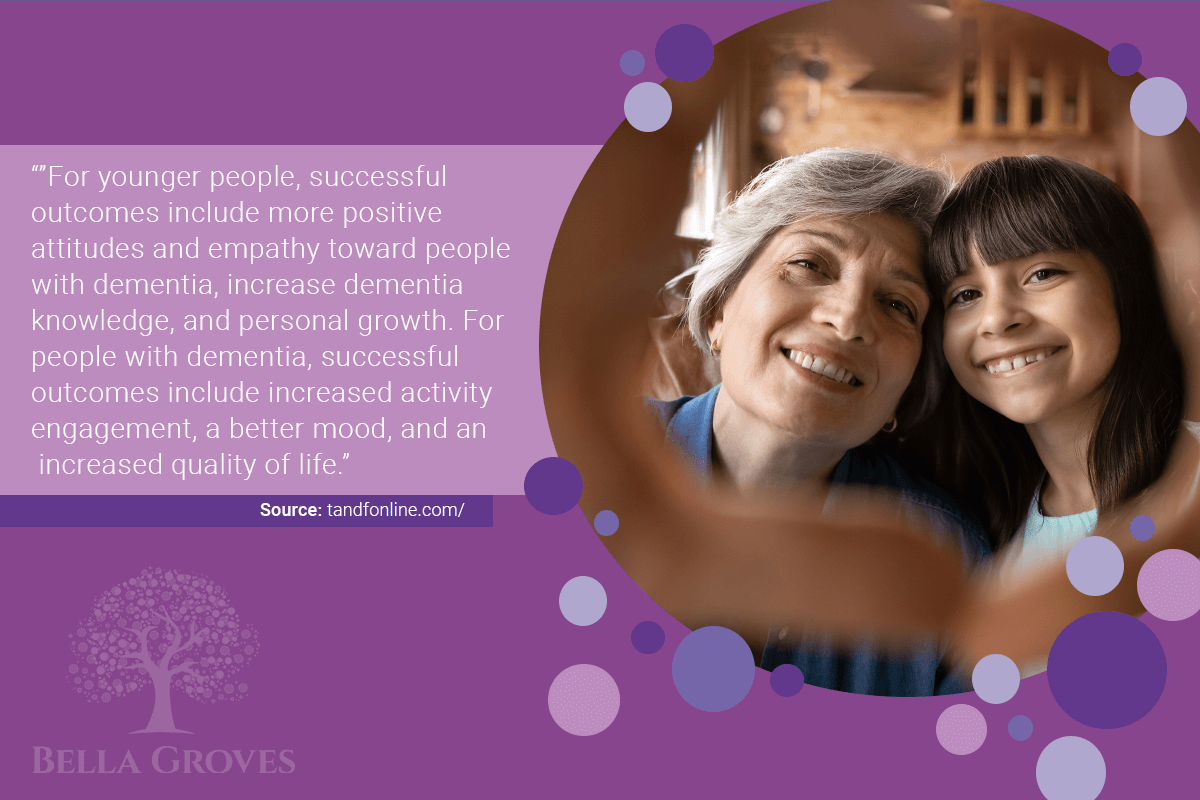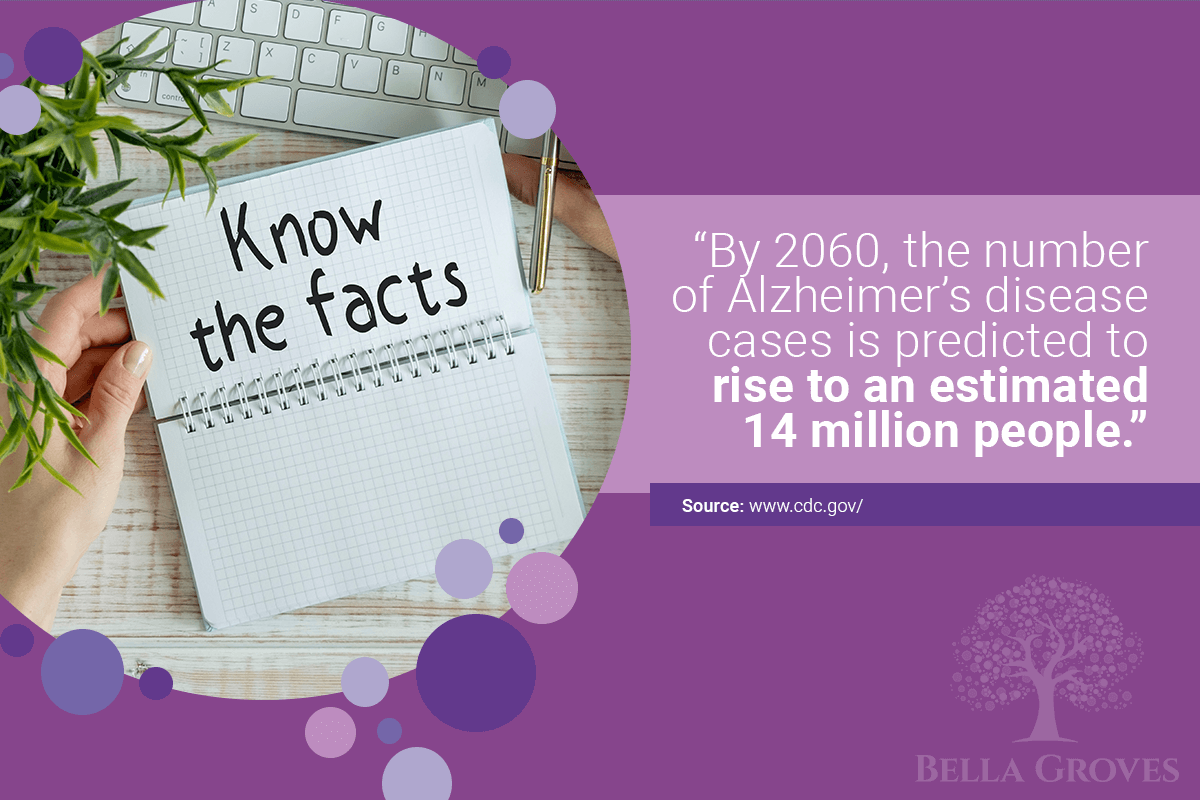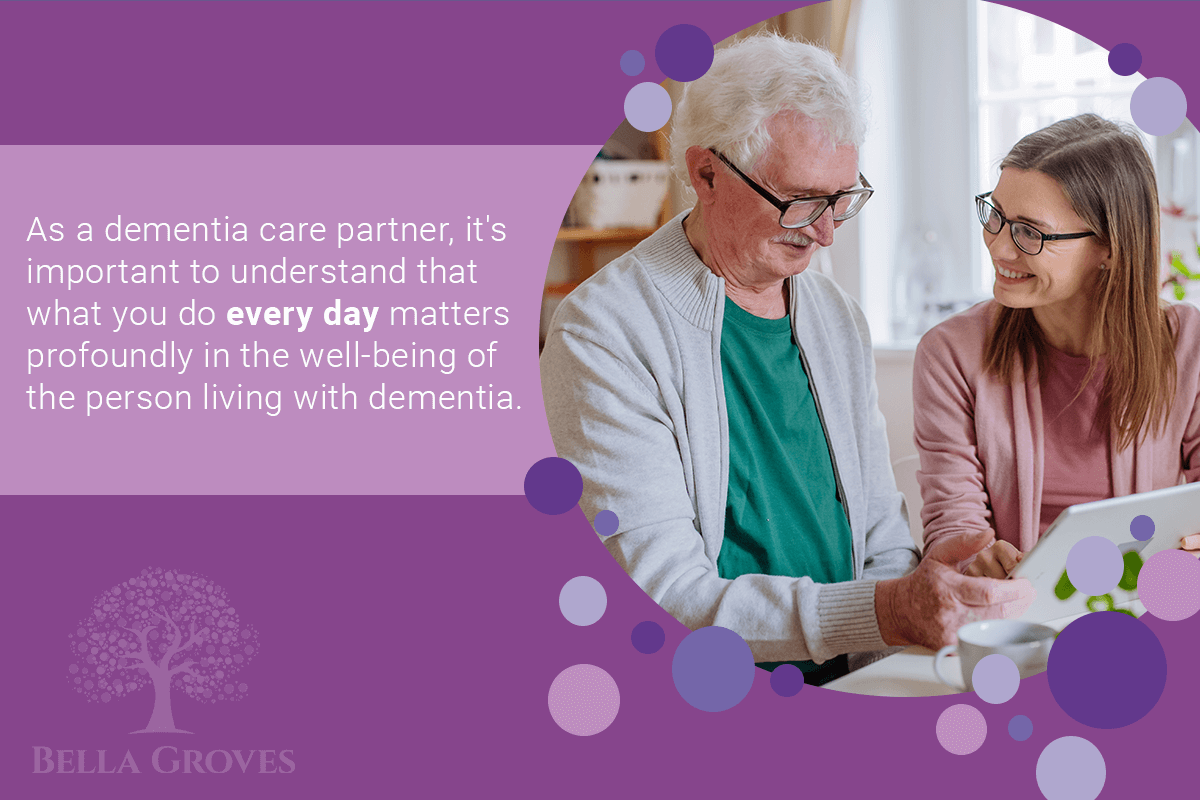
Intergenerational Activities in Dementia Care
Bridging generational gaps is one of the primary keys to creating an inclusive and progressive environment on a larger scale in our society, and the fusion of so many different perspectives, experiences, and ideas can create long-lasting bonds of trust and respect.
When it comes to intergenerational activities in dementia care, it’s been proven that by spending time with younger generations, those living with dementia experience less agitation and gain many therapeutic benefits.
Bella Groves has a service level for everyone affected by dementia, from educational resources and support groups for caregivers and families to compassionate residential dementia care in San Antonio. Below, our team shares the positive impact of intergenerational activities for those living with dementia and beyond.
What are Intergenerational Activities?
Intergenerational programs are built on the idea that each generation has something unique to offer the other, promoting positive engagement between older and younger individuals. Intergenerational activities can involve any demographic spending meaningful time with another age group, such as young adults making crafts with kindergarten-aged children or older adults sharing personal wisdom with young adults preparing for college.
Intergenerational activities offer opportunities for aging adults and young people to come together and engage in meaningful interactions, such as sharing stories, playing games, or participating in community service projects. By doing so, they gain a new perspective and appreciation for each other’s experiences and perspectives, which can help foster empathy, understanding, and respect across generations.
These programs also provide a sense of purpose and belonging to older adults who may be socially isolated or experiencing age-related health issues while offering younger participants a chance to learn from and connect with their elders.
How Can Intergenerational Activities Help a Person Living with Dementia?
Dementia is a progressive neurodegenerative disorder that affects millions of people around the world. The condition leads to a decline in cognitive function, which can manifest in various ways, such as memory loss, difficulty communicating, and impaired judgment.
Over time, these cognitive changes can make it challenging for individuals with dementia to express their thoughts and feelings effectively. They may struggle to communicate their needs, leading to frustration and confusion. Additionally, they may experience feelings of loneliness and isolation as they struggle to connect with others.
Fortunately, research has shown that intergenerational bonding can be incredibly beneficial for people living with dementia. By participating in activities with people from different generations, older adults can experience a sense of purpose and connection, while younger generations can gain a sense of empathy towards others. To make these activities more dementia-friendly, it is important to choose activities that are engaging, sensory, and easy to follow. Some examples include art projects, music therapy, storytelling, and gardening.
These activities not only provide an opportunity for individuals to connect with one another, but they also offer cognitive stimulation and a chance to exercise fine motor skills.
In addition to the benefits for those with dementia, intergenerational activities also have a positive impact on the younger generations. By spending time with older adults, they can learn about history and culture and gain a sense of empathy and understanding toward others.
Are There Cons to Intergenerational Activities?
While there are positive aspects of intergenerational activities in dementia care, some potential cons need to be considered before planning or participating.
For example, young children and older adults with cognitive decline tend to lack inhibitions, which can lead to unpredictable instances or potential accidents. Think about your own children, grandchildren, or smaller kids that you’ve been around. They may not know the social skills needed to behave in certain circumstances. When it comes to a person living with dementia, they also face a similar situation. As dementia progresses, many behavioral and personality traits change and diminish over time, leading to inappropriate or unusual manners.
Multigenerational Living at Bella Groves
Recently, Elisabeth, a stay-at-home mother of two daughters, felt compelled to start volunteering at Bella Groves. In reflection, Elisabeth said,
“I’d like to show my daughters what the community as a whole is deprived of—they have a lot to learn from the generations that occupy Bella Groves, and it’s rare we get the opportunity to spend time with that demographic. It also encourages them to be mindful and concerned for the people we aren’t surrounded by on a regular basis. Going to Bella Groves will hopefully instill in them a responsibility to our elders, recognizing them as valuable mentors and seasoned veterans of their community.”
Our dementia care community in San Antonio has always dreamed of multigenerational living, and this collaboration helps support that. One of our residents expressed, “Babies are… everything.”
We invite you to visit our website to discover resources surrounding education and personal growth and learn more about Bella Groves’ mission.


